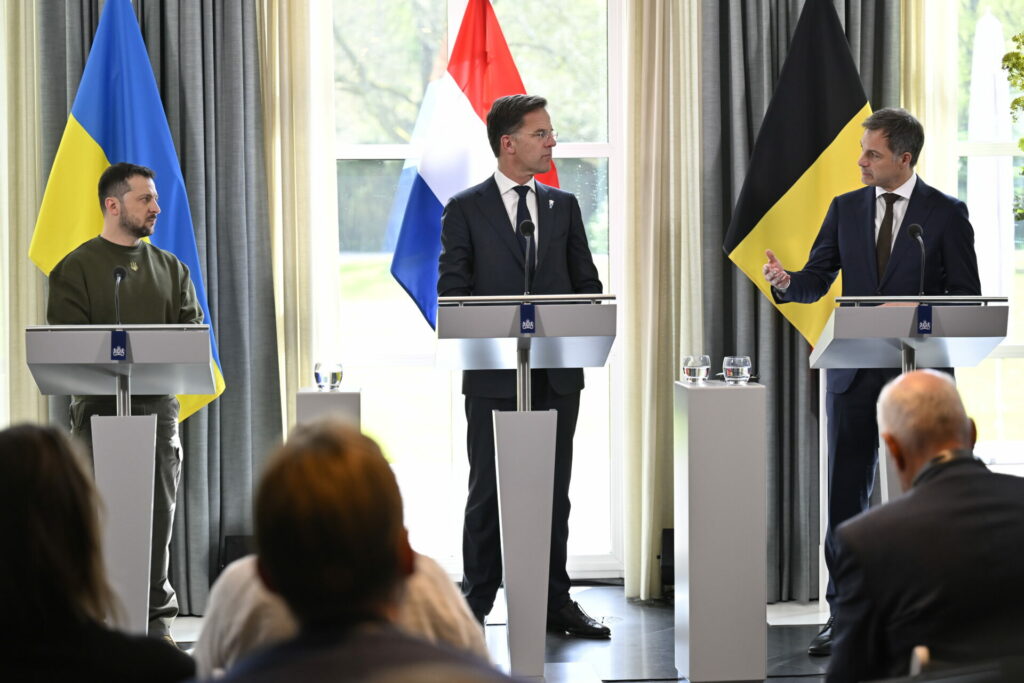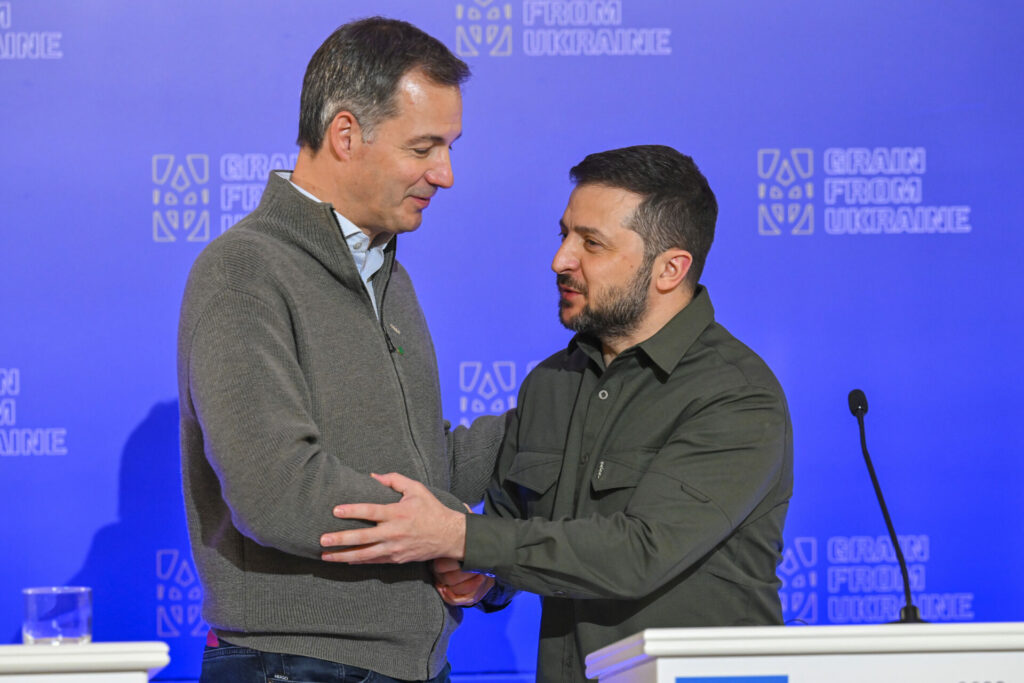The Federal Government approved a new package of support measures for Ukraine worth €92 million on Friday, Prime Minister Alexander De Croo’s office announced.
Half of the amount is earmarked for new military aid, which includes the delivery of armoured vehicles, weapons and ammunition.
"The success of this new aid will lie in the speed with which the new equipment can be delivered to Ukraine. Our country's goal with this new arms and ammunition package is to meet the needs on the ground in a very short timeframe," Defence Minister Ludovine Dedonder said.
Dedonder's office would not give any details of the equipment to be delivered. When asked about the tanks, she specified that they were not the Lynx wheeled armoured vehicles that were announced in March, but combat vehicles from the Belgian defence industry. She also confirmed the vehicles are not from defence stocks.
The delivery is also not part of the German, Dutch and Danish initiative to supply Leopard I tanks to Ukraine, which Belgium was considering joining and "which is ongoing."
Humanitarian aid worth €24 million will be allocated in coordination with the United Nations to basic needs such as education, health and food security in the major cities and war zones. A further €8 million will go to the reconstruction of Ukraine through funds set up by the European Investment Bank and the World Bank.
Reinforcing diplomatic presence
Investments are planned for the Belgian diplomatic network in Ukraine and the region. Two posts will be opened in Armenia and Moldova, part of whose territory is in the hands of pro-Russian separatists amid fears it is facing the same fate as its Ukrainian neighbour.
"In the current context, it is necessary to show more explicit support for Moldova, particularly with regard to the European accession process and the reforms that accompany it," Ms Lahbib stressed.
Another will be opened in the Caucasus, in Armenia, which is in conflict with Azerbaijan over control of the Nagorno-Karabakh region.
"Belgium's increased diplomatic attention in a country and region with strong Russian influence is part of the European Neighbourhood Policy towards the countries to the east of the EU and demonstrates the concern to preserve security and stability in this strategically important region," the minister added.
Securing Ukraine's energy infrastructure, including nuclear power plants, "will be given special attention."
The International Criminal Court's war victim support fund will also benefit from the resources announced. "We are particularly committed to supporting victims of war, women and girls who have been sexually assaulted and thousands of children deported to Russia. An investigation must be carried out as soon as possible to clarify these war crimes and bring the perpetrators to justice," Foreign Minister Hadja Lahbib said.

Ukraine president Volodymyr Zelensky, Prime Minister of the Netherlands Mark Rutte and Prime Minister Alexander De Croo talk to the press in The Hague, the Netherlands, Thursday 04 May 2023. Credit: Belga / Dirk Waem
The Prime Minister announced this new package of measures last week during a trip to the Netherlands where he met with Ukrainian President Volodymyr Zelensky and Dutch Prime Minister Mark Rutte.
More than a year after the start of the Russian invasion, the Ukrainian army is preparing a counter-offensive. On Thursday, the Ukrainian president said in an interview with the BBC that his country needed a little more time.
"For the war to end, the counteroffensive that Ukraine is planning must be successful. The extra aid that Belgium is providing today will contribute to this," De Croo said.
The money comes from the tax revenues earned on Russian financial assets frozen in Belgium.
When it had finalised its budgetary adjustment at the end of March, the Belgian government had announced that it would use the interest from frozen Russian assets to support Ukraine directly, but also for the integration income of Ukrainians in Belgium.
At the time, the figure is estimated to be €625 million.

